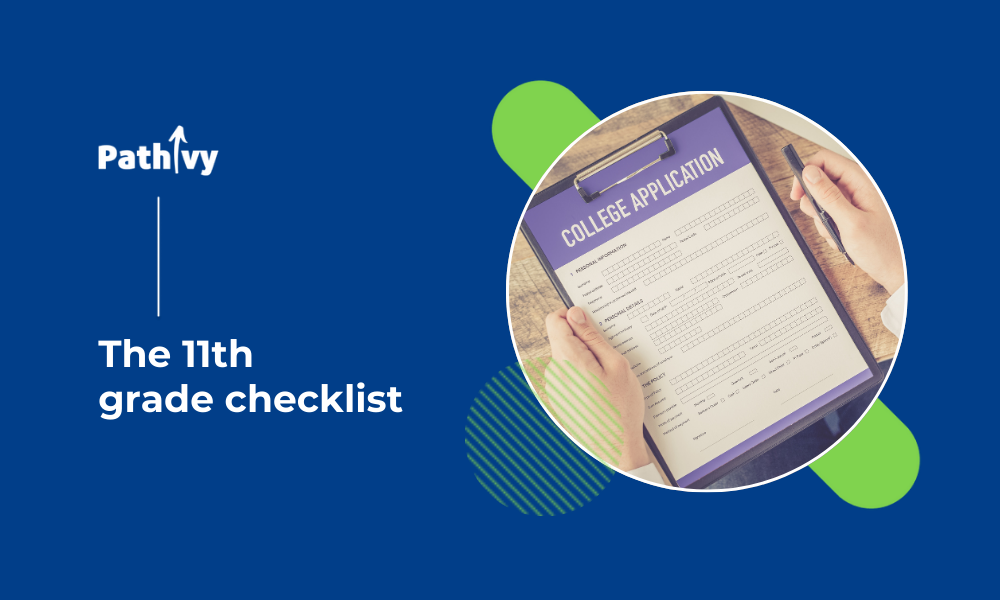You are now an upperclassman and about to begin or already began what is known as the most important and arguably the most important year of high school: junior year. While that may sound intimidating, it does not have to be. Here’s a handy checklist to help.
1. Show Interest in Colleges
If you can visit the college in person, then that is the best option. However, if you can’t due to a pandemic, financial reasons, or lack of time, then show interest by attending college fairs, contacting your admission representative, or requesting college information. All these are great ways to not only learn more about prospective colleges but also demonstrate interest which can go a long way in the college admission process.
2. ACT/SAT
By the start of junior year you should've already decided which one you want to pursue, so commit wholeheartedly to your preparation. Find sections that you are weak at and review and study them, but also take practice full length tests biweekly or every month to increase your testing stamina. You should ideally be done with the ACT/SAT by the end of junior year of high school.
3. Subject SATs
Ideally take 3- Math II, a science test, and an humanities test. Start preparing for them, at latest, the summer before junior year. Aim to get, at lowest, a 750. Look at which of the classes you're taking correspond with the curriculums.
4. Take on leadership roles
Try to be the president or founder of, at minimum, one organization. Active something within the organization--whether this is the amount of money fundraised, students reached, etc, find some sort of quantitive way to measure your (impressive) impact.
5. Connect with your teachers
You should always try to create a relationship with your teachers, but it especially important junior year. In the fall of senior year, you will need recommendations for colleges, so ensure you have two teachers that will go to bat for you. Go to office hours and show maturity and a desire to learn/improve.
6. Connect with your counselor
Colleges ask for a college recommendation, so make an effort to get to know them, especially if you attend a big public high school. The more personal a recommendation is the better it is. Your college counselor may also a great resource for questions about college admissions and college planning strategies.
7. Find an internship
Many students intern between junior and senior summer in order to demonstrate their knowledge, work ethic, and professional. If you do not obtain a formal internship that is okay. You should email professors at your local college and connect with adults you do know in an effort to find another opportunity to showcase your talents. Find an opportunity that resonates well with the rest of your profile. Here's some more specific information on how to handle summer given the COVID-19 pandemic.
Not a junior? Check out our first year and sophomore checklists.
.png?width=175&height=73&name=ORIGINAL%20LOGO%20Blue%20and%20Green%20(1).png)
.png?width=50&name=author-image%20(2).png)

